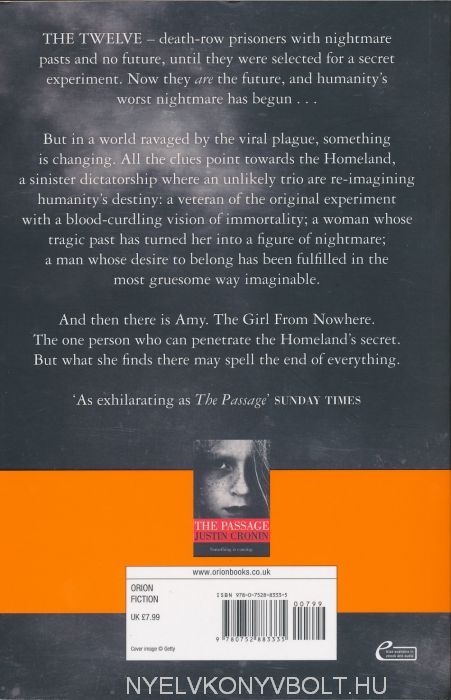



This is a dystopian novel that doubles as a detective story, and Proctor is an appealing protagonist, semi-hard-boiled but never descending into cliché. He’s also trying to navigate his increasingly rocky marriage to Elise, a fashion designer whose mother, Callista, is the chair of the Board of Overseers for All Prospera-“the boss of everything.” The twists in this novel are plentiful and authentically surprising, and although there are tons of moving parts, Cronin does a wonderful job handling them. you.” Then things get even more complicated: Proctor meets art dealer Thea, who’s tight with a group of dissatisfied Annex residents, and then he gets fired from his job, which leads him to believe Prospera might not be everything he’s thought it was. One day, Proctor learns that the next person he’s in charge of ferrying is his father, and it turns out the old man doesn’t go quietly-on the way to the pier, he begins muttering seemingly incomprehensible phrases, telling his son, “The world is not the world,” and “You’re not. The Annex, another island, is “home to the support staff-men and women of lesser biological and social endowments.” Proctor Bennett lives on the main island and works as a “ferryman”-when his fellow residents become older or infirm, he escorts them to a boat that will carry them to the “Nursery Isle,” where they are reborn as teenagers who will then rejoin Prospera. Things aren't what they seem in the supposedly idyllic state of Prospera.Ĭronin’s latest takes place in Prospera, an archipelago state that “exists in splendid isolation, hidden from the world.” The main island is designed to be something of a paradise, “free of all want and distraction,” where residents are urged to pursue art and personal betterment.


 0 kommentar(er)
0 kommentar(er)
